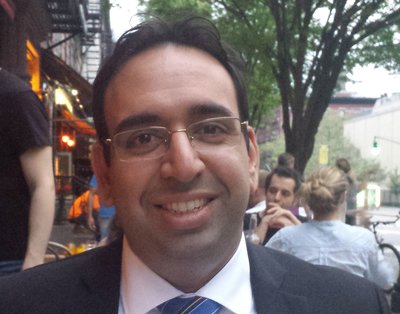12 Jun 2017
MILE Alumni Profiles: Faisal Siddiqui
[The MILE] can be an excellent place to study and... learn from others with a very different range of experience and skills sets.
Faisal Siddiqui joined the MILE 3 programme with a degree in international relations and went on to build a career as a political officer with the United Nations. In this interview he outlines his career path and explains how the MILE helped him hone his professional skills.
Tell us where you are working now and in what capacity.
Currently I am working at the United Nations in New York as a Political Affairs Officer with the United Nations Operations and Crisis Centre (UNOCC). At the UNOCC I cover the desk for South and Eastern Africa reporting on politics, elections, human rights and socio-economic issues.
Can you summarise your career steps since graduation from the MILE?
After graduating from the MILE programme, I worked as an intern with the International Centre for Trade and Sustainable Development (ICTSD) for six months. I then moved on to the Permanent Mission of Pakistan to the WTO in Geneva for a year as a Research Officer. Then in 2005, I moved over to the Permanent Mission of Pakistan to the UN in New York as an Advisor for three years, where I worked on a team dealing with second committee (economic and financial) and third committee (social, humanitarian and cultural) issues.
In 2008, I joined the UN in Darfur, Sudan as a Civil Affairs Officer for a two-year period. I worked in El Geniena, West Darfur, dealing with capacity building of government officials, conflict resolution and early warning of conflict. In 2010 I moved to the UN Mission in Afghanistan (UNAMA), working in Farah province which borders Iran to the West and Helmand and Kandahar to the South. Farah is a major transit hub for opium and a base of the Taliban. During my three years in Farah I was the Officer In Charge of the UNAMA sub-office for 15 months and worked on political issues and supported the capacity building of government officials.
In 2013, I moved to the United Nations Mission in South Sudan (UNMISS) and worked in Jonglei state for a year dealing with early warning, conflict resolution and implementing a locally brokered peace deal between the government and David Yau Yau's rebel group. After UNMISS I worked for the Field Personnel Department (FPD) of the UN Secretariat in New York on UN recruitment for peacekeeping and special political missions for a two-year period. In 2015, I joined the UNOCC.
What drew you to the MILE in the first place?
I received my Bachelor’s in International Relations from Webster University in Geneva and was looking for a Master's programme in Switzerland that added to my credentials in the field of international politics. The MILE’s mixture of law and economics focusing on the WTO and international trade appealed to me. The idea that economics and trade heavily influence geo-political realities and politics is not new, and I felt the programme and its unique style would aid my career aspirations.
In what ways would you say you have benefited from the programme?
I joined the MILE straight out of my BA so the weekly schedule of classes mimicked in certain ways the work environment: 9 to 5 with a deadline at the end of the week. That, in practical terms, helped with developing organisational skills and the ability to prioritise. Additionally, the short-term nature of final exams on a Friday made sure I took responsibility for my work. Also, the way the courses are structured with all the information provided to the class and then they work independently to accomplish the task helped hone professional skills for the work environment.
Do you have any advice for current or potential students?
The advice I would give is that you get out what you put into the programme. It can be an excellent place to study and grow and to learn from others with a very different range of experience and skills sets.
Further info


